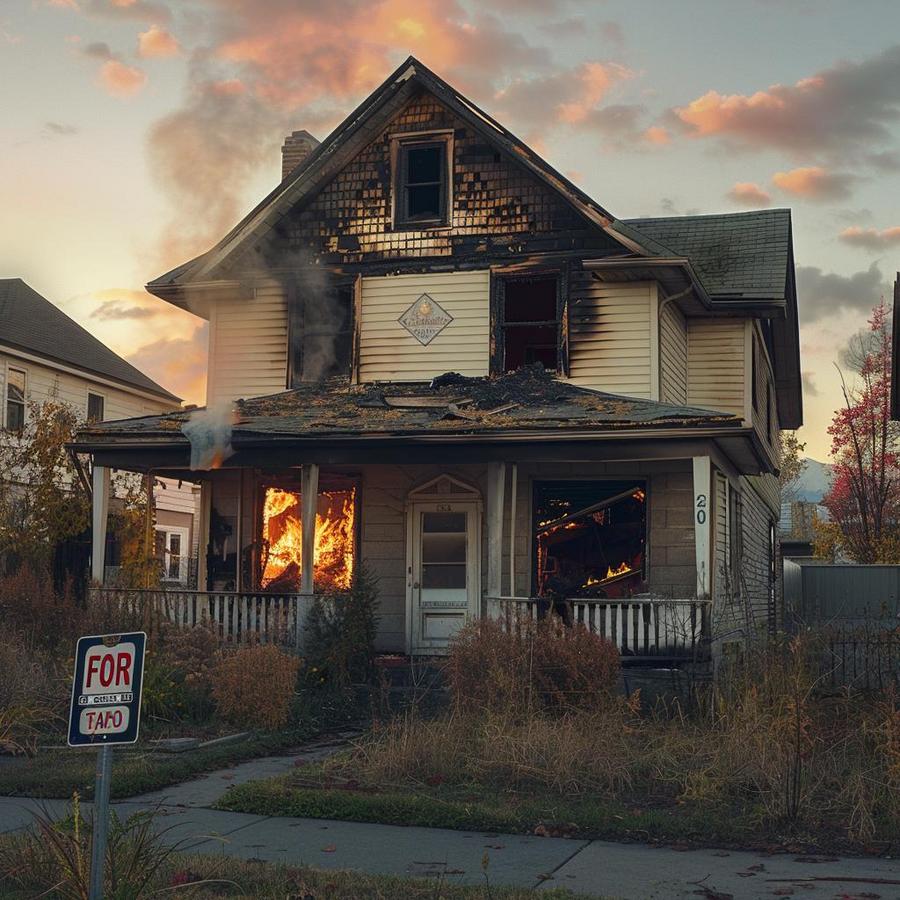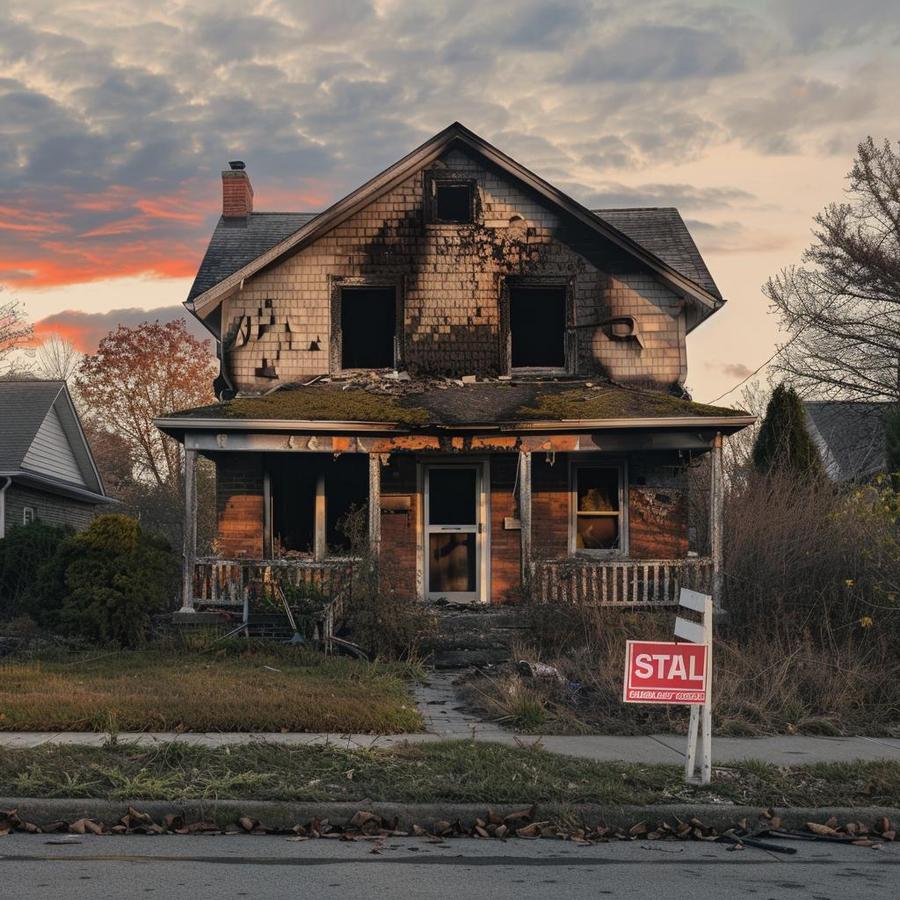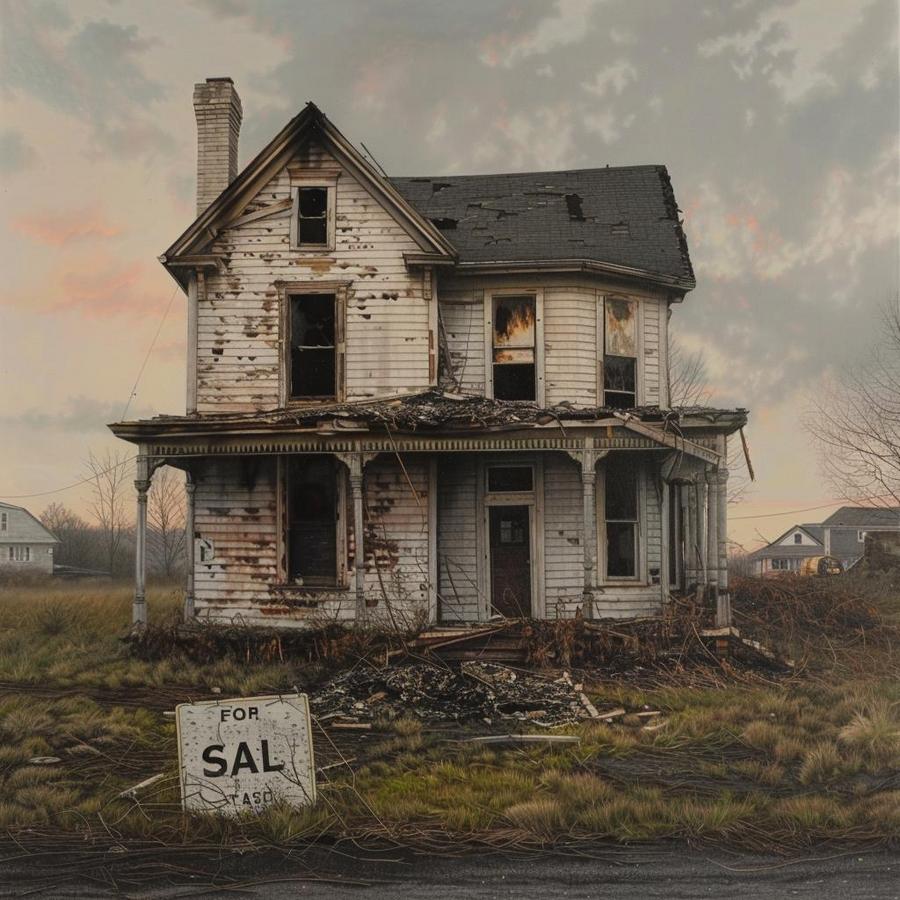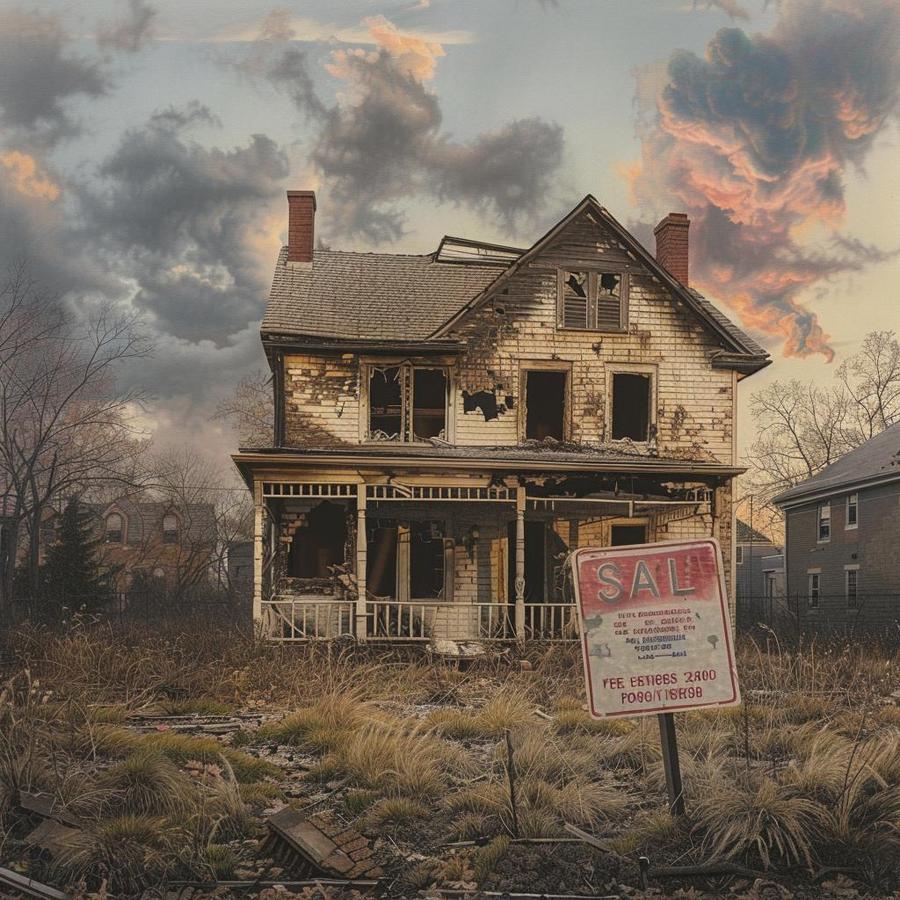Let’s be honest—selling a fire damaged house in Houston (or really, anywhere in Texas) can feel like a nightmare. I’ve seen homeowners freeze up, not knowing where to start. But here’s the thing: it doesn’t have to be that complicated. This guide covers who actually buys these properties, realistic pricing strategies, and how you might skip repairs entirely. If you’re looking to sell my house fast in Houston or elsewhere in Texas, there are ways to make this mess manageable.
TL;DR:
- Selling as-is avoids repair costs and speeds up the sale.
- Know the damage extent and restoration costs before pricing.
- Full disclosure of fire damage is legally required.
- Location and repair costs impact market value.
- Options include auctions, investors, or specialized agents.
- Buyers may use FHA 203k loans to finance repairs.

Why Consider Selling Your Fire-Damaged House As-Is?
Benefits of Selling As-Is
Here’s what selling as-is actually means: no contractor headaches, no waiting six months for repairs, and you get to move on with your life. Sure, investors typically offer less than retail—sometimes 30-40% below what a pristine home would fetch. They’re taking on the risk, after all. But for many sellers? That trade-off is worth it.
Who Buys Fire-Damaged Homes?
The typical buyers? Real estate investors and house flippers. These folks have construction crews on speed dial. I’ve noticed they tend to cluster in major Texas cities, though you’ll find them in smaller towns too. What’s interesting is that some investors actually prefer fire-damaged properties—they see opportunity where others see disaster. Whether you’re in Houston, Dallas, or tiny Marfa, someone’s probably interested.
Approach to the As-Is Process
First things first: get brutally honest about your property’s condition. One contractor quote isn’t enough—I’d suggest getting at least three. Then do the math. Compare repair costs to what the house might sell for afterward. When you list it, don’t sugarcoat anything. Buyers appreciate transparency, and it saves everyone time.
How to Assess Fire Damage Before Selling
You can’t price what you don’t understand. Fire damage goes beyond charred walls—water damage from firefighting efforts can be just as destructive. Sometimes the smoke damage in the attic is worse than the actual burned areas. For Texas-specific considerations, check out tips on selling a house fast in Texas.
Determining Damage Extent
Look beyond the obvious. Check your electrical system (fire can melt wiring inside walls), examine the foundation for heat cracks, and don’t forget the HVAC system. A licensed inspector—preferably one who knows fire damage—can spot problems you’d never think to check.
Understanding Restoration Costs
Let me give you real numbers: A friend in Fort Worth had moderate fire damage last year. Roof replacement ran $14,000, smoke remediation was another $7,500, and electrical work hit $8,000. That’s nearly $30,000 for what seemed like “minor” damage. Texas labor costs vary wildly—Austin contractors might charge 20% more than those in Lubbock.
Impact on Home Value
Fire damage definitely hurts value, but context matters. A burned house near Austin’s tech corridor will likely fare better than one in a declining rural area. Pull up recent sales of damaged homes in your ZIP code—this gives you actual data, not guesswork.
Should You Repair Fire Damage Before Selling?

Cost vs. Benefit
Sometimes repairs make sense. Sometimes they don’t. If fixing everything costs $60,000 but only adds $45,000 to your sale price, you’re basically lighting money on fire (sorry, bad pun). Plus, consider that repairs take time—months you could be paying mortgage, insurance, and property taxes on a house you can’t live in.
Worked Pricing Example
Real scenario: House worth $185,000 if perfect. As-is, maybe $120,000. Repairs would cost $40,000, selling expenses run $5,000, and investors want $20,000 profit minimum. An investor might offer you $115,000-$120,000 today. Could you get more after repairs? Possibly. Is it worth the hassle? That’s your call.
Options Without Repairs
You’ve got choices. List it as-is and see what happens. Or go straight to an investor—less money but way faster. Emphasize the good stuff: great school district, growing neighborhood, whatever. North Texas sellers might want to sell my house fast in Dallas through investor networks that know the local market dynamics.
Disclosing Fire Damage to Potential Buyers: What You Need to Know

Legal Obligations
Texas doesn’t mess around with disclosure laws. You have to tell buyers about fire damage—period. Even if you fixed everything perfectly. Hiding it? That’s lawsuit territory, and trust me, buyers’ lawyers are good at finding these things.
Preparing Documents
Gather everything: fire department reports, insurance claims, contractor invoices, photos from before and after. That water heater that failed after the fire? Document it. The more paperwork you have, the smoother things go.
Impact on Negotiations
Being upfront might mean lower initial offers, but it also means fewer deals falling apart at the last minute. Buyers respect honesty—it suggests you’re not hiding other problems.
How Do Fire-Damaged Home Sales Affect Property Values?
A burned house on the block can spook neighbors about their own property values. The effect is usually temporary, though. Once you sell my house fast in Austin and repairs begin, things tend to stabilize pretty quickly.
Neighborhood Impact
One eyesore can drag down the whole street’s appeal. But I’ve also seen neighborhoods rally—sometimes a fire-damaged property getting fixed up actually improves the area’s trajectory.
Calculating Market Value
Start with comparable sales, then subtract repair costs plus a “hassle factor” that buyers will demand. Online tools like property assessment resources can help, though they might not fully account for fire damage.
Financing Options for Buyers Interested in Fire-Damaged Properties
FHA 203k Loan
This government-backed loan is pretty clever—it rolls purchase price and renovation costs into one mortgage. Not every buyer knows about it, but those who do might pay more for your damaged property.
Buyer Considerations
Smart buyers look past the damage to see potential. They’re calculating whether your burned house near that new Tesla factory might be worth double in five years. Location still matters, even when half the roof is gone.
Selling Strategies: Auction, Real Estate Agent, or Direct Buyer?
Each approach has its moment. Need speed? Direct sale to an investor. If you’re trying to sell my house fast in San Antonio, cash buyers can close in a week. Want maximum price and have time? Try a specialized agent.
Auction vs. Direct Sale
Auctions create urgency but might attract lowballers. Last month, I saw a fire-damaged property in Houston sell at auction for 40% below its estimated as-is value. Direct sales to investors? More predictable, usually faster, but rarely the highest price.
Specialized Agents
Not all agents understand damaged properties. Find one who’s sold fire-damaged homes before—they’ll know which buyers to call and how to price it right. The wrong agent will just waste your time with unrealistic expectations.
Seller Checklist
- Get a full damage inspection.
- Collect all repair and fire reports.
- Decide on as-is vs. repair sale.
- Research local investor buyers.
- Be transparent in your listing.
- Understand your legal obligations.
FAQs
Can I sell a fire damaged house without repairs?
Absolutely. Cash investors buy burned properties all the time. They’ll factor repair costs into their offer, so expect maybe 50-70% of the theoretical repaired value. But you could have money in hand within two weeks.
How long does it take to sell a fire damaged home?
Investor sales? Sometimes just 7 days from first call to closing. Traditional market with a realtor? Could be three to six months, assuming you find a buyer willing to take on the project.
Will insurance payouts affect the sale?
It depends on your policy fine print. Some insurers let you keep the payout even if you sell as-is. Others might want their money back. Call your insurance company before making any big decisions—this conversation could save you thousands.





